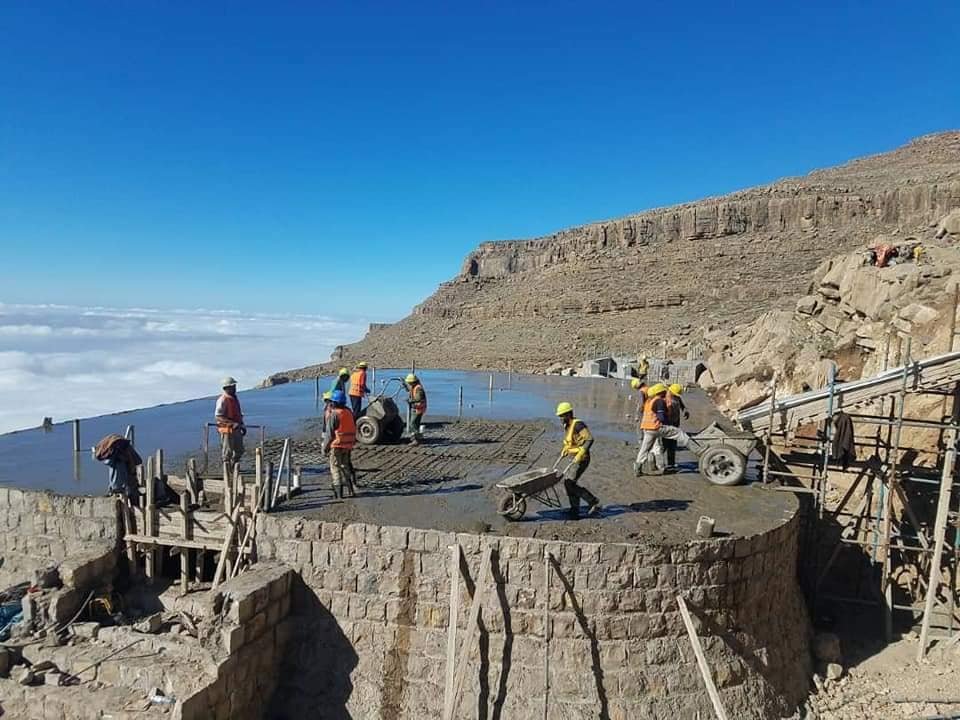Sana’a, 2 September 2022 (TDI): As a result of Climate Change, Yemen’s access to clean water has become more challenging. The World Bank project will build rainwater-harvesting infrastructure providing 900K cubic meters of pure water to 3 villages.
Safe water is becoming more difficult to get in Yemen as climate change makes rainfall scarcer & less reliable. A project helped build rainwater-harvesting infrastructure providing 900K cu m of clean water in 3 villages: https://t.co/T59FPgBDgU #WorldWaterWeek #ClimateStories_WBG pic.twitter.com/iQujgetubl
— World Bank (@WorldBank) September 1, 2022
Numerous rural villages in Yemen lack access to essential amenities, but for many in these disadvantaged communities, access to safe drinking water is the biggest challenge.
Moreover, the problem is exacerbating as rainfall is becoming scarcer and less reliable due to Climate Change.
The World Bank and its partners collaborated with the communities in three villages to develop their rainwater harvesting schemes to increase access to potable water and support families.
Many of #Yemen’s most vulnerable have little access to safe drinking #water, and climate change is exacerbating the problem. @WorldBank & partners work with local communities to build #rainwater-harvesting systems that provide easy access to safe water:https://t.co/BwB1Y7ZU7h
— Makhtar Diop (@Diop_IFC) September 1, 2022
Also, the project paid local workers as part of the initiative in three villages: Al-Adn (Ba’adan in Ibb); Al-Anin (Wasab Al-Aali), Dhamar; and Hawf (Al-Mahra).
Empowering communities
The initiative demonstrates harvesting rainwater in cisterns, a relatively simple technology can play a significant part in reducing the consequences of global warming and enhancing the lives of many people, especially those living in rural regions.
Along with providing water, the initiative offered people who helped build the cisterns with paid employment.
Also read: World Bank provides financial assistance to Yemen
Yemen is one of the countries with the least access to water. The provision of clean drinking water will probably be one of the primary issues that people will face in the upcoming years because around 18 million people lack access to safe water and sanitation.
Furthermore, conflict in the region has had a significant negative influence on water infrastructure, which complicates the situation.
Besides, variations in average annual rainfall and the onset of droughts in some locations are problems made worse by climate change.
Reaped benefits of the project
The advantage of household rainwater harvesting schemes is the ability for communities to collect rainwater in huge quantities and store it in cisterns for later use.
Moreover, the initiative will halt people to rely on contaminated public ponds, which is another advantage of the domestic rainwater harvesting program.
The water conservation schemes are part of the World Bank’s International Development Association, Yemen Emergency Crisis Response Project (YECRP).
They are being implemented by the United Nations Development Programme (UNDP) in partnership with the Social Fund for Development and the Public Works Project in Yemen.
The project’s goal is to make vulnerable communities more climatically resilient. In total, Yemen’s YECRP has helped build over 900,000 cubic meters of clean water, including 1,279 public and 30,686 household rainwater harvesting reservoirs and cisterns.






